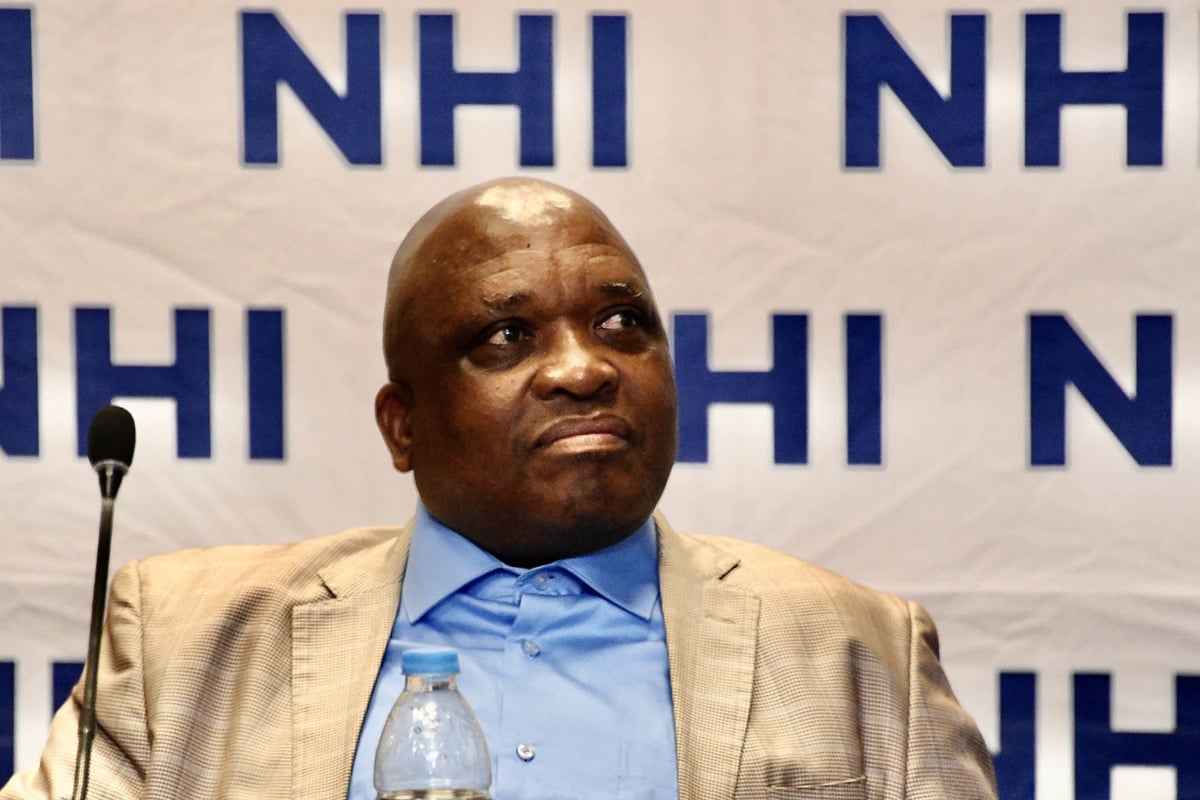Global Courant 2023-05-26 12:45:54
The Portfolio Committee on Health has decided to move forward with the National Health Insurance Bill (NHI), despite opposition and growing concerns about some of its provisions.
According to parliament, the committee considered and approved the NHI bill on Thursday (May 25) after the parliament’s legal adviser presented both the A-list and B-list bills to the committee.
“The A-list essentially enumerated all the amendments as approved by the committee. The B-Bill reflected all proposed amendments and comments that are part of the new NHI bill,” the House said.
On Friday (May 26), the committee will consider and approve the NHI Bill committee report.
Broadly speaking, the NHI bill aims to provide universal access to healthcare in South Africa – as enshrined in the constitution as a fundamental right. It seeks to achieve this by ensuring that:
No one is denied the right to health care because of their socio-economic status; A single public health fund is being established with sufficient resources to plan and effectively meet the health needs of the entire population, not just a select few. The ultimate goal is to achieve Universal Health Coverage (UHC).
Funded by general taxes and contributions from people earning above a certain amount, the NHI fund will pool money for both private and public healthcare providers, eventually removing the requirement for South Africans to contribute directly to a medical care scheme .
The NHI bill was originally introduced to parliament in August 2019 and has undergone years of public participation and consultation in an effort to calm the nerves of private sector stakeholders, including medical aid schemes, hospital groups, political organizations and trade unions.
Despite deliberation, both private providers and medical aid schemes feel they are getting the short end of the stick, believing that if the bill becomes law, they will no longer be a viable option for people.
Under Clause 33 of the NHI Bill, private insurance and medical assistance are waived. It says that:
“Once national health insurance is fully implemented, as determined by the minister through regulations in the Government Gazette, medical schemes may only provide additional coverage for services not reimbursed by the fund.”
The announcement that the bill had been passed brought immediate threats of legal action.
Solidarity union said it would continue to take the government and ministry to court over the bill.
Peirru Marx, Medical Industry Network Coordinator at Solidaritysaid the government is “misleading South Africans into saying that the NHI will promote health care in South Africa while obscuring the fact that health care is readily available, but that the officials who manage these essential services do not have the political will to do what necessary to improve the quality of health services to be delivered.”
“The implementation of the NHI will undoubtedly lead to disaster in the medical industry. The government simply cannot be trusted. Their history of abuse of power, mismanagement and corruption will undoubtedly jeopardize the quality of medical care.”
“We are also concerned about the number of healthcare providers who have indicated that they do not want to work in these circumstances. There is also concern about the complete collapse of the free market in this sector as a result of the NHI,” said Marx.
Discovery Health, one of the country’s largest providers of medical plans, said the new legislation could be constitutionally challenged.
As reported by Business dayRyan Noah, Discovery Health’s CEO, said he was disappointed that the recently amended version of the bill contained hardly any substantial changes.
“The portfolio committee chose not to take the opportunity to make amendments to the bill that would improve both the feasibility and effectiveness of the NHI Fund, despite detailed and constructive input from multiple stakeholders.
“As a result, it is very likely that this bill will be challenged through various legal avenues, probably including on constitutional grounds,” the CEO said.
Not only private institutions are concerned about the bill. The parliamentary legal service has found that there are a large number of potential constitutional pitfalls in the current draft of the bill, including a lack of clarity and the allocation of incorrect powers to certain ministers.
According to the PLS, the NHI will significantly change the function of medical arrangements.
It said certain arguments in the bill’s submissions allege that the NHI’s requirement to determine where individuals can receive medical care and what treatments they can receive infringes on people’s right to access health care and their freedom of association .
The bill has the full backing of President Cyril Ramaphosa, who on May 6 called for strong governance and leadership by the Department of Health.
Ramaphosa said the NHI’s aim is to provide the quality health care South Africans need, and despite efforts to integrate health departments, quality health care is largely influenced by where you live – increasing the need for a universal approach.
He added that the bill is expected to be discussed and considered in the National Council of Provinces after June.
See a full copy of the NHI invoice below:
Read: Short-term pain, but long-term gain for South Africa








